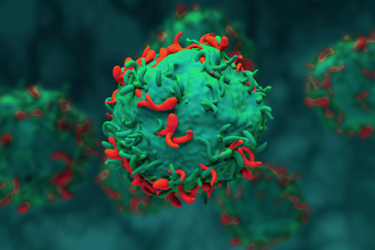In-Vivo CAR Therapies — Global Research And Development Landscape

CAR T-cell therapy has revolutionized cancer treatment, particularly for blood cancers. However, current autologous and allogeneic approaches face significant hurdles like high costs, logistical complexities, and patient access issues. In-vivo CAR T-cell therapy aims to overcome these by directly engineering T-cells inside the patient, eliminating complex external manufacturing.
Autologous CAR T-cell therapies are personalized but involve a lengthy, expensive process limiting access. Allogeneic, or "off-the-shelf," therapies offer scalability but carry risks such as graft-versus-host disease (GvHD) and immune rejection. Even point-of-care (POC) manufacturing struggles with infrastructure and regulatory hurdles.
In-vivo CAR T-cell therapy seeks to combine the durability of autologous treatments with the scalability of allogeneic ones. This could make CAR T-cell treatments safer, more affordable, and more widely available. Researchers are reprogramming immune cells directly in the body using viral vectors, lipid nanoparticles (LNPs), and bioinstructive scaffolds, significantly cutting manufacturing time and costs.
Several biotech companies are driving in-vivo CAR T-cell innovations. Examples include EXUMA Biotech with GCAR lentiviral vectors, Umoja Biopharma developing VivoVec viral particles, Vector BioPharma focusing on SHREAD adenoviral vectors, Ensoma with non-viral Engenious vectors, Capstan Therapeutics exploring mRNA-based CAR T-cell therapy, and Interius BioTherapeutics advancing in-vivo CAR T for blood cancers.
2024 was a landmark year for cell therapy, with the first US approvals of TIL and TCR cell therapies for solid tumors. CAR T-cell therapies also advanced to earlier lines of treatment, now approved as second- and third-line options for multiple myeloma in both the US and EU, indicating broader clinical adoption.
With significant investment from biotech and pharmaceutical giants, the in-vivo CAR field is poised for major advancements. As clinical trials progress, this revolutionary approach could redefine cell therapy, expanding its reach beyond oncology into areas like autoimmune diseases, fibrosis, and genetic disorders. By addressing current limitations, in-vivo CAR therapy promises to transform patient outcomes by making cellular immunotherapy more efficient, cost-effective, and widely accessible.
This report explores the evolving landscape of in-vivo CAR therapy, examining key technological innovations, major industry players, recent clinical progress, and regulatory developments. Beyond cancer, we also investigate the expanding role of in-vivo CAR, with potential applications in autoimmune diseases, fibrosis, and genetic disorders. By assessing emerging research and market trends, this paper offers valuable insights into how in-vivo CAR therapies could redefine the future of cell-based immunotherapy.
Get unlimited access to:
Enter your credentials below to log in. Not yet a member of Cell & Gene? Subscribe today.
